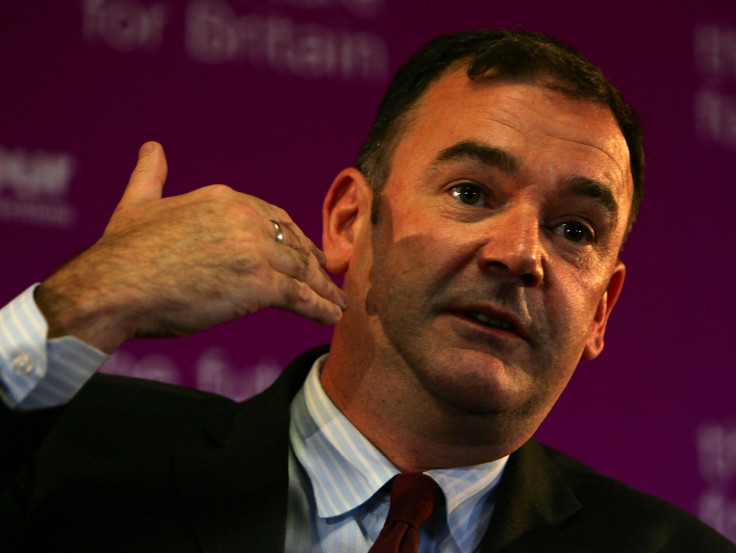Ukip is the canary in the coal mine for Labour's working class problem

Aside from the SNP surge in Scotland, the biggest shock for Labour at the recent General Election was the extent to which traditional Labour voters opted for Ukip.
The scale of the overall Ukip vote in Britain was impressive enough. The party took close to four million votes across the country (3,881,129 according to the BBC's final figures). But the bigger surprise was how far Ukip ate into the Labour vote – especially when in recent years the former has so often been dismissed as a gang of well-heeled shire Tories.
This lazy characterisation helps to explain why, under the doomed leadership of Ed Miliband, Labour went into May's election with a good deal of complacency about Ukip. It was an attitude largely drawn from polling in 2014, which showed that Ukip was taking four or five Tory voters for every one Labour voter.
Yet as with so much of what passed for punditry prior to the election, the theory that Ukip were little more than the Conservative party in exile dissolved into pure wind as soon as the exit polls were announced. The Ukip share of the vote was higher in Labour-held seats than in Conservative areas.
Besides a gimmicky energy price freeze and a tacky immigration mug, little attempt was made at reconnecting with blue collar voters who would once have ticked the box for Labour as surely as night follows day.
It wasn't as if Labour had not been warned that this might happen. Back in 2014, the academics Matthew Goodwin and Robert Ford drove the point home eloquently in their book Revolt on the Right.
Rather than being disenfranchised right-wing Tories who were harking back to the days of penny farthings and hanging, Ford and Goodwin revealed that Ukip voters were "much more likely to be low-income, financially insecure and working class.
They look like old Labour, and since 2010 the Ukip surge has been strongest among these low-skilled, older and blue-collar workers, the exact groups that Labour is struggling with the most".
Hardly the 'Conservative Party in exile', as the former Telegraph columnist Peter Oborne once described Farage's party.
And so Labour had at least some idea that a good number of 'their' voters were flirting with Ukip. Yet as with the electoral massacre at the hands of the SNP in Scotland (again entirely predictable before polling day) no one at the summit of the party had a clue how to stop it.
Besides a gimmicky energy price freeze and a tacky immigration mug, little attempt was made at reconnecting with blue collar voters who would once have ticked the box for Labour as surely as night follows day.
Fortunately, the scale of Labour's defeat does provide an opportunity for some much-needed soul searching - as well as a chance to face up to a few home truths about the state of the party and - as important - the left.
Firstly, then, there is more than an element of truth to the Ukip assertion that the left - including the Labour party - is increasingly the domain of an 'out of touch liberal elite'. Not in the sense that Labour is ruled by genuinely principled liberals – were that the case we might hear a few sterner defences of free expression now and again – but in the sense that the left has lost interest in the politics of class; and by extension the politics of the working class.
Rather than seeking to understand working class life, today's left is far more interested in the much vaguer concept of 'identity'. Politics is no longer about representing the economic interests of a particular group or class, but is instead characterised by an obsession with a phony and tokenistic 'equality'.
For the modern radical, while disadvantages accrued by gender, race and religion are exaggerated, the privileges bestowed by a person's social class are breezily dismissed. Anatomy is once again destiny, and 'diversity' means a boardroom half made up of middle class men and half of middle class women – with a sprinkling of middle class ethnic minorities.
No wonder, then, that those who, in Ford and Goodwin's words, 'look like old Labour', want nothing to do with the modern left. Whereas socialism once meant the class struggle, today it is the notion that you put an impoverished old (male) ex-miner and the Queen in a room together and the miner is the one with 'privilege'.
For the left, if there is a glimmer of hope to be taken from the recent election it is in the fact that Labour did not haemorrhage votes to Ukip because it was too left-wing on the economy – a standard trope on the Blairite wing of the Labour party.
According to numerous polls, Ukip have for years been picking up swaths of support from Britons worried about things like the cost of living, job security and low wages. But oft-referenced 'ordinary working people' are increasingly disinterested in the left because the liberal left (which dominates the Labour party) are no longer interested in the working class.
Progressives are instead consumed by the idea of a stylised marginality whereby anyone can be a victim (indeed, victimhood is positively encouraged) unless you happen to be white and male (and crucially as far as this article is concerned, white, working class and male).
Here is a political prediction for the next 10 years: while the middle class left is busy fighting language wars and arguing over trigger warnings, the right will hold Downing Street as its personal fiefdom. And Labour won't be able to claim it wasn't warned. Ukip, future generations of leftists will say, was the canary in the working class coal mine.
James Bloodworth is editor of Left Foot Forward. You can follow James @J_Bloodworth and his blog @LeftFootFwd.
© Copyright IBTimes 2024. All rights reserved.






